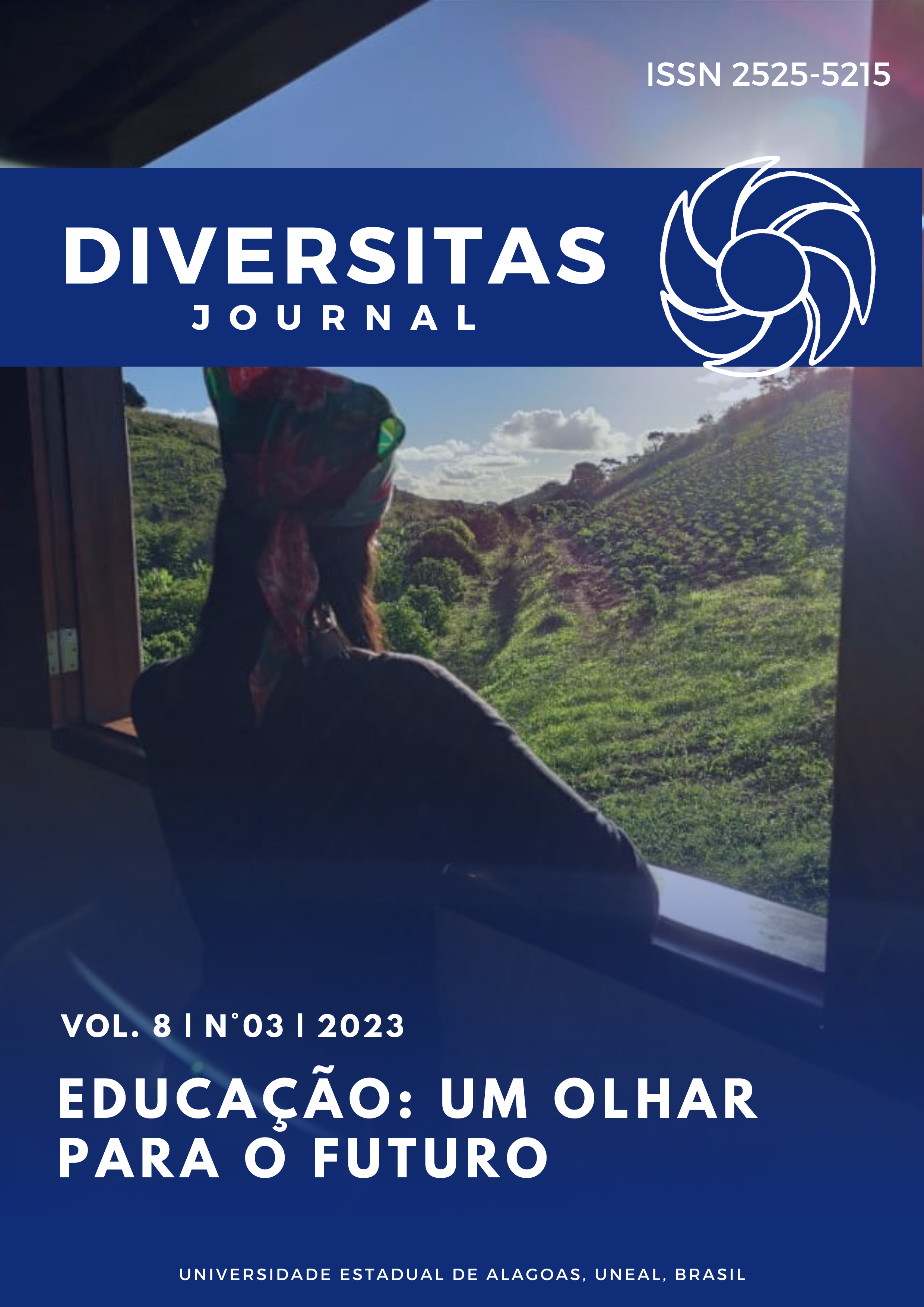Employment Status of Students from a Local University during the Covid-19 Pandemic
DOI:
https://doi.org/10.48017/dj.v8i3.2642Palavras-chave:
Working Student, Covid-19, Quantitative Research, teleworking, EmploymentResumo
Trabalhar enquanto assiste às aulas é um dos motivos mais citados pelos evadidos universitários. Como a pandemia de Covid-19 acelerou a adoção do teletrabalho pelos empregadores, as oportunidades de emprego online aumentaram. Dado que o cenário permite que os alunos trabalhem enquanto estudam online, determinar o número e a extensão dos alunos empregados é uma importante área de pesquisa. Este estudo tem como objetivo documentar os perfis de emprego dos alunos de graduação da Quezon City University. Um total de 7.050 respostas foram recebidas durante o período da pesquisa. De acordo com os resultados do estudo, cerca de 15% dos alunos estão empregados em tempo integral ou parcial. No momento da pesquisa, 64% dos alunos trabalhadores que responderam à pesquisa estão trabalhando no local, enquanto 24% estão trabalhando em casa. Enquanto isso, 50% desses estudantes trabalhadores estão extremamente satisfeitos com sua situação atual de emprego, enquanto 44% estão um pouco satisfeitos. Em geral, a maioria dos inquiridos está satisfeita com a sua situação profissional atual. Apesar do fato de que apenas dois em cada dez entrevistados são estudantes trabalhadores, a administração escolar ainda deve prestar muita atenção a essa questão. É necessário o desenvolvimento de políticas que atendam a esses alunos. Para estudos futuros, também é importante examinar os padrões de emprego entre os alunos de graduação e como esses padrões variam ao longo do tempo e com base nas características dos alunos.
Métricas
Referências
Amor, J. ., Allauigan, J. ., Martinez, J. A. ., Zapanta, J. L. ., & Ablen, Ph.D., A. . (2020). Working Students: Its Effect on Academic Performance of Education Students in Bestlink College of the Philippines. Ascendens Asia Singapore – Bestlink College of the Philippines Journal of Multidisciplinary Research, 2(1). Retrieved from https://ojs.aaresearchindex.com/index.php/aasgbcpjmra/article/view/1720
Astudillo, M. L. ., Martos, R., Reese, T. M. ., Umpad, K. J., & Dela Fuente, A. . (2019). The Effects of Time Management among Working Students of Selected Grade 12 General Academic Strand of Senior High School in Bestlink College of the Philippines. Ascendens Asia Singapore – Bestlink College of the Philippines Journal of Multidisciplinary Research, 1(1). Retrieved from https://ojs.aaresearchindex.com/index.php/aasgbcpjmra/article/view/1254
Drašler, V., Bertoncelj, J., Korošec, M., Pajk Žontar, T.,Poklar Ulrih, N., and Cigić, B. Difference in the Attitude of Students and Employees of the University of Ljubljana towards Work from Home and Online Education: Lessons from COVID-19 Pandemic. Sustainability, 13, 5118. https://doi.org/10.3390/su13095118
Ebardo, R. and Wibowo, S. (2021). I work to learn: The Lived experiences of working students in online learning during Covid-19. International Conference on Computers in Education 2. https://www.researchgate.net/publication/356194963_I_Work_to_Learn_The_Lived_Experiences_of_Working_Students_in_Online_Learning_during_COVID-19
Kowalski, K B.. and Swanson, J.A. (2005). Critical success factors in developing teleworking programs", Benchmarking. An International Journal, 12(3), 236-249. https://doi.org/10.1108/14635770510600357
Garado, B. A. ., Inductivo, H. M. ., Rodriguez, G. F. ., Villahermosa, J. C. ., & Villegas, G. P. (2019). An Assessment on the Difficulties encountered by the HUMSS SHS Working Students of Bestlink College of the Philippines. Ascendens Asia Singapore – Bestlink College of the Philippines Journal of Multidisciplinary Research, 1(1). Retrieved from https://ojs.aaresearchindex.com/index.php/aasgbcpjmra/article/view/1327
Hovdhaugen, E. (2015). Working while studying: The impact of term-time employment on dropout rates. Journal of Education and Work, 28(6), 631-651. Pedroso, J. E., Alcarde, M. L., Gordon, A. J., and Ponesto C. B. (2022). Challenges and Opportunities Faced by Working Students Amidst Pandemic. Journal of Digital Learning and Distance Education, 1(5). https://rjupublisher.com/ojs/index.php/JDLDE/article/view/38
Hovdhaugen, E. and Aamodt, P. O. (2009). Learning environment – Relevant or not to students’ decision to leave university? Quality in Higher Education, 15(2), 177-189.
International Labour Organization. (2020). Teleworking during the Covid-19 pandemic and beyond.
Lopez-Igual, P. and Rodriguez-Modrono, P. (2020). Who is teleworking and where from? Exploring the main determinants of telework in Europe. Sustainability, 12(21, 8797. https://doi.org/10.3390/su12218797
Nurwulan, N. R. and Selamaj, G. (2020). Working university students in Riau Archipelago: Dual role and depression, 5(2). Pedroso, J. E., Alcarde, M. L., Gordon, A. J., and Ponesto C. B. (2022). Challenges and Opportunities Faced by Working Students Amidst Pandemic. Journal of Digital Learning and Distance Education, 1(5). https://rjupublisher.com/ojs/index.php/JDLDE/article/view/38
Ton, D., Arendsen, K., de Bruyn, M., Severens, V., van Hagen, M., van Oort, N., and Duives, D. (2022). Teleworking during Covid-19 in the Netherlands: Understanding behaviour, attitude, and future intentions of trains travellers., Transportation Research Part A: Policy and Practice, 159, 55-73. https://doi.org/10.1016/j.tra.2022.03.019
Tsurugano, S., Nishikitani, M., Inoue, M., and Yano, E. (2021). Impact of the COVID-19 pandemic on working students: Results from the Labour Force Survey and the student lifestyle survey. Journal of Occupational Health. https://doi.org/10.1002/1348-9585.12209
Downloads
Publicado
Como Citar
Edição
Seção
Licença
Copyright (c) 2023 Angelito Bautista Junior, Araceli Suyat, Maria Aura Impang, Candice Erika Rudi, Bernard Gaya, Manuel Junior Abiera, Gracia Josue

Este trabalho está licenciado sob uma licença Creative Commons Attribution 4.0 International License.
O periodico Diversitas Journal expressa que os artigos são de unica responsabilidade dos Autores, conhecedores da legislação Brasileira e internacional. Os artigos são revisados pelos pares e devem ter o cuidado de avisar da possível incidencia de plagiarismo. Contudo o plagio é uma ação incontestavel dos autores. A Diversitas Journal não publicará artigos com indicios de Plagiarismos. Artigos com plagios serão tratados em conformidade com os procedimentos de plagiarismo COPE.
A violação dos direitos autorais constitui crime, previsto no artigo 184, do Código Penal Brasileiro:
“Art. 184 Violar direitos de autor e os que lhe são conexos: Pena – detenção, de 3 (três) meses a 1 (um) ano, ou multa. § 1o Se a violação consistir em reprodução total ou parcial, com intuito de lucro direto ou indireto, por qualquer meio ou processo, de obra intelectual, interpretação, execução ou fonograma, sem autorização expressa do autor, do artista intérprete ou executante, do produtor, conforme o caso, ou de quem os represente: Pena – reclusão, de 2 (dois) a 4 (quatro) anos, e multa.”


















